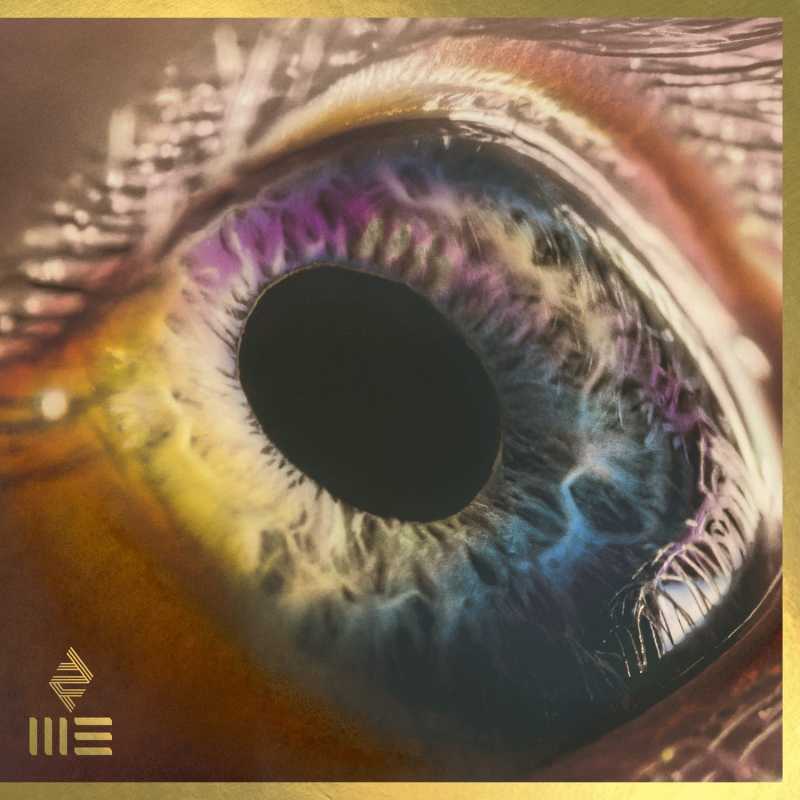Arcade Fire let the songs do the talking on their sixth studio record.
Back in 2007, The Arcade Fire (Win Butler’s definitive article, not your reviewer’s) warned us: ‘I know a time is coming, all words will lose their meaning.’
Lifted from the suitably apocalyptic Black Mirror from the Neon Bible album, those words are eerily relevant in the post-truth edge. But where do you go once you’ve predicted the future?
The answer, as has been the case for eight years and three albums, is simply to dance through the dystopian pain. Where 2013’s Reflektor had its moments, the Canadian/French act stumbled on Everything Now five years ago, their marketing plan of presenting themselves as a corporation crossing a line into over-irony, to say nothing of it being an inferior version of its predecessor.
On WE, the shining disco-balls are still present and correct, but they’ve been tempered and toned down to serve the songs rather than dominate them.
Thematically it’s an album of two halves, the first covering isolation, opening with two-parter (the album is less a collection of songs, more a series of movements) Age Of Anxiety I and II – inspired by I Am Waiting, a poem by Lawrence Ferlinghetti about looking for the soul of America.
Unfortunately, like many of us, Win Butler is distressed at what he sees; the introductory line, ‘It’s an age of doubt and I doubt we’ll figure it out’, follows an understated, pensive piano opening with the verses interspersed with short breaths akin to an anxiety attack.
Strings chime in to be replaced by synths but fulfil the soul-moving requirements ably as the song evolves to an early Eurythmics, reach-for-the-sky crescendo. And that’s just Part I.
There has recently been talk of New Order mixes following WE’s release, with Part II surely being the likely candidate. Although starting hymnally, the dry drums and stuttering beat propel the song on to the dancefloor, the hook of ‘rabbit hole/plastic soul’ (being long-term fans, this is surely a Bowie reference) catchy enough to be memorable as Regine’s unmistakable vocals herald the song’s regeneration. It has the motion of Reflektor but the grandiosity replaced by a tired determination.
The album’s centre-piece (track 3 of 7) is End Of The Empire I-IV (‘one last dance here at the end of the empire makes me cry’); a 9-minute opus which covers every trick in the Arcade Fire playbook with stirring strings, Beatles anthemia, Butler’s pleading singing, the themes…it’s gargantuan in scale.
The Bowie influence pops up again, with the opening, piano-led sequence reminiscent of the outsider’s perspective of the Ziggy Stardust era, with a woozy sax on the song’s epilogue to round things off.
There’s little ambiguity about the lyrics as Butler bemoans, ‘feeling uninspired at the end of The American Empire’, before resolving to, ‘unsubscribe, this ain’t no way of life’. Earnestness has always been one of the band’s strengths, and its sheer ambition puts End Of The Empire in the upper echelons of their canon.
Happily, the second half of the album is imbued with a sense of resolve and determination, although musically it falls slightly short of what went before. If asked to create an archetype of an Arcade Fire song, the algorithms would surely create both The Lightning I,II and Unconditional (Lookout Kid).
The former is an uplifting, stadium-rock march (‘don’t quit on me, I’ll never quit on you’) which, although familiar, still has the capacity to make the fist clench and the eyes well up, while the latter is cut from the same cloth but stomps a little bit harder, an ode to Win and Regine’s son.
The song’s second half (keep up at the back!), Unconditional II (Race and Religion) features no less than 80’s royalty Peter Gabriel with a finger-snapping, synth-drenched track that may have some lyrical clangers (‘You be my race and religion/this love is no superstition’) that can be forgiven for its sheer joy.
Lastly, the title-track reflects on what has come before and decides that, while modern life isn’t worth it, the joy of love and family is, neatly tying the album themes and title together; ‘When everything ends can WE do it again?’.
To be cynical is to be cool, but The Arcade Fire have always reached beyond that and found comfort in unabashed sentimentality. As such, WE is an amalgamation of their strongest work, stripped down to a concise 40 minutes.
They always reach for the stars and, although they may fall slightly short on this occasion, the efforts are closer (and better) than they have been for over a decade.





